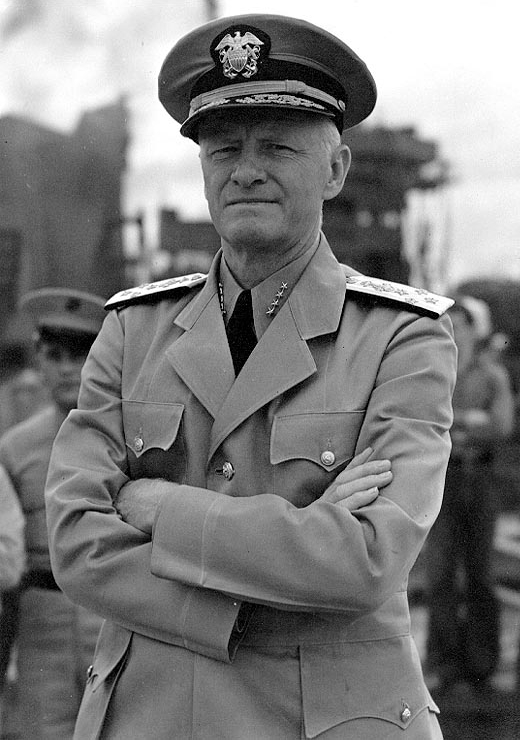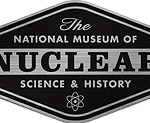Unkotare
Diamond Member
- Aug 16, 2011
- 129,970
- 24,992
Pretty sure I have.But you haven't provided loads of evidence. Y.....
Follow along with the video below to see how to install our site as a web app on your home screen.
Note: This feature may not be available in some browsers.
Pretty sure I have.But you haven't provided loads of evidence. Y.....
Find it yourself. ....
I will not do your work for you. ...
I'm not reading 900+ posts to find one. ....

 www.atomicheritage.org
www.atomicheritage.org
Nuclear weapons will end any war. Yiu make the case to drop them on the first day of battle....to hasten the end of the war.On July 26, 1945 the Allied forces issued the Potsdam declaration calling for Japan's unconditional surrender. The Japanese rejected the demand few days later. On August 6, 1945, the United States dropped an atomic bomb on Hiroshima, followed by the second nuclear attack on Nagasaki three days later. On August 14, 1945, Japan declared its surrender.

Chester W. Nimitz - Nuclear Museum
Chester W. Nimitz (1885-1966) was Fleet Admiral of the US Navy and Commander in Chief of the US Pacific Fleet during World War II.Nimitz was born on February 24, 1885 in Fredericksburg, Texas to parents of German descent. He attended the US Naval Academy from 1901-1905, where he finished 7th…www.atomicheritage.org
Per Nimitz
“He said he was not attempting to minimize the ‘awful power’ of the new weapon, because it undoubtedly ‘hastened the end.’
Facts.....
That question weighed on their minds when the Potsdam Declaration arrived (July 27-28), calling on them to surrender unconditionally or face immediate destruction. Yet they rejected the four-power ultimatum, feeling as former prime minister and navy"moderate," Admiral Yonai Mitsumasa, said to his secretary on July 28,"There is no need to rush."Nuclear weapons will end any war. Yiu make the case to drop them on the first day of battle....to hasten the end of the war.
The Japanese had, in fact, already sued for peace. The atomic bomb played no decisive part, from a purely military point of view, in the defeat of Japan.
— Fleet Admiral Chester W. Nimitz, Commander in Chief of the U.S. Pacific Fleet, [91]

So? Why not wait for the russian invasion? A three day wait. They surrendered after the invasion. Why couldn't we wait three days? We knew the exact date of the invasionFirst of all, the bomb was not dropped on the first day of battle. Secondly, the Japanese refused to surrender at Potsdam.
Well you certainly have an opinion.....one our military leaders did not agree withThat question weighed on their minds when the Potsdam Declaration arrived (July 27-28), calling on them to surrender unconditionally or face immediate destruction. Yet they rejected the four-power ultimatum, feeling as former prime minister and navy"moderate," Admiral Yonai Mitsumasa, said to his secretary on July 28,"There is no need to rush."
These people had many reasons to bring the lost war to an end short of Japan's further destruction and unconditional capitulation to the Anglo-Americans. But only the emperor had the sovereign power to resolve the issue. And during the entire month of June and well into July, when U.S. terror bombing of Japanese civilian targets peaked, he resisted and showed no determination to do so.
Emperor Hirohito and his chief political adviser, Kido Koichi, stuck with the militarists and insisted on continuing with preparations for final battles on the home islands even in late June, when all organized resistance on Okinawa had ended, and an estimated 120,000 Japanese combatants (including Koreans and Taiwanese) and 150,000 to 170,000 non-combatants lay dead. U.S. combat losses in the battle of Okinawa were approximately 12,520 killed and over 33,000 wounded. With time accelerating and their sense of the urgency of the situation deepening, Hirohito responded to this defeat by forcing the army and navy leaders to agree to the idea of an"early peace." But he still gave no indication that he was thinking in terms of an immediate surrender, let alone proposing peace to the nations he was actually fighting.

Why Did the Japanese Delay Surrendering?
A producer for the Korean Broadcasting System, which is doing a special program commemorating August 15, 1945, recently asked me why Japan's ruling elites rejected the Potsdam Declaration."What issue most impeded their decision to surrender?" he inquired."Shouldn't they have cared more for the...historynewsnetwork.org
The decision to drop the bomb was far more complicated than your arrogant, ill informed anti-American screeds. I just gave you a fire hose of information. You have given nothing but revised historical opinions some of which are just not true.
Because Hirohito was facing a military coup after his peace overtures to Moscow. The atomic bombs and the Soviet invasion gave Japanese decision-makers a good justification for ending the war.So? Why not wait for the russian invasion? A three day wait. They surrendered after the invasion. Why couldn't we wait three days? We knew the exact date of the invasion
No the coup only happened when he offered surrenderBecause Hirohito was facing a military coup after his peace overtures to Moscow. The atomic bombs and the Soviet invasion gave Japanese decision-makers a good justification for ending the war.
My opinion? Shit, I gave you the link which is more than you have ever done in this discussionWell you certainly have an opinion.....one our military leaders did not agree with
Wanna bet?My opinion? Shit, I gave you the link which is more than you have ever done in this discussion
There was no coup because he refused to surrender. You don't seem to comprehend.No the coup only happened when he offered surrender
There was a attempted coup when he did surrenderThere was no coup because he refused to surrender. You don't seem to comprehend.
I have yet to see you post anything to back up your revised history.Wanna bet?
Well I have posted numerous linksI have yet to see you post anything to back up your revised history.
No, dufus, a coup was threatned if he did surrender. The military did not want to surrender. Emperor Hirohito and his chief political adviser, Kido Koichi, stuck with the militarists and insisted on continuing with preparations for final battles on the home islands even in late June......As far as Hirohito: "But he still gave no indication that he was thinking in terms of an immediate surrender, let alone proposing peace to the nations he was actually fighting." I already gave you the link to this information, apparently you either can't read very well or comprehend what you read or just refuse to read any real history at all.There was a attempted coup when he did surrender
He did it anyway
Not in your discussions with me you haven't. You keep alluding to all these links you posted yet I have yet to see one and I am NOT, as I said, going to go through 900+ posts to find them.Well I have posted numerous links